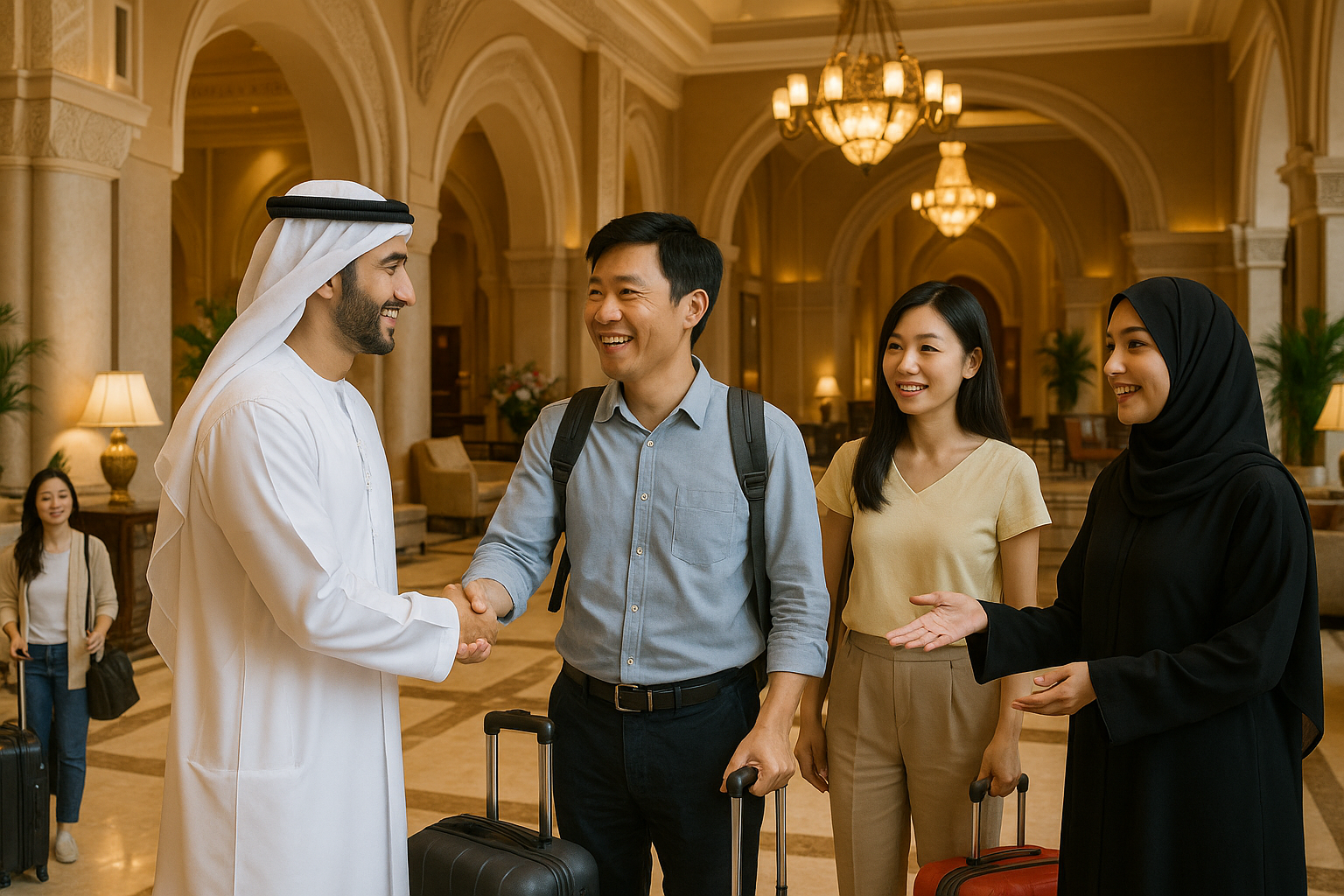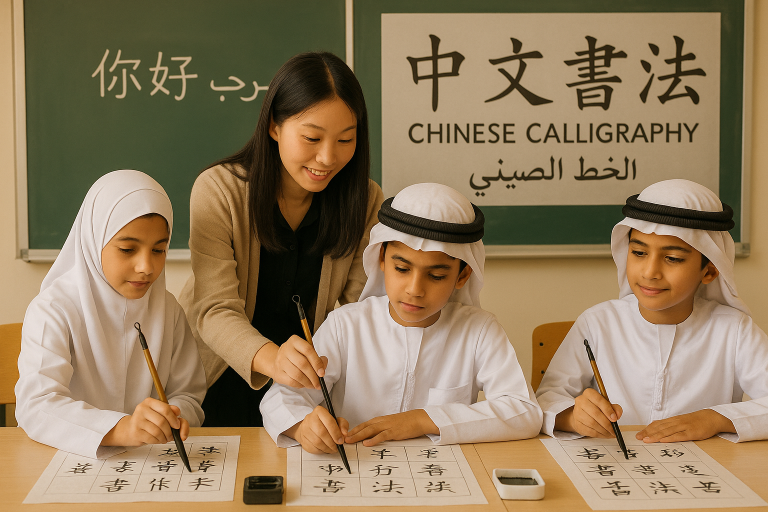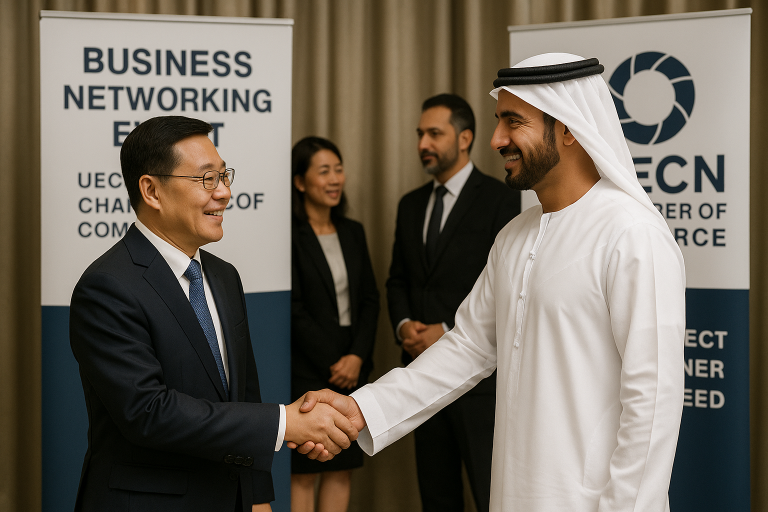Tourism and Hospitality: A Golden Welcome for Chinese Visitors
Introduction
A Chinese family, arriving at the gleaming expanse of Dubai International Airport after a long flight, is immediately put at ease. They are greeted by digital signage in familiar Mandarin characters guiding them towards immigration. After a smooth and welcoming entry process, they stop for a coffee, paying for it instantly with a quick scan of a QR code on their WeChat Pay app. This small, seamless transaction, happening thousands of miles from home, is a perfect microcosm of a much larger story. It is the story of how the United Arab Emirates has masterfully and intentionally transformed itself into one of the world’s most welcoming, attractive, and convenient destinations for Chinese travelers. This remarkable success is not an accident; it is the result of a multi-layered strategy built on a foundation of visionary government policies, a deep and respectful cultural understanding, and a world-class hospitality sector that has gone above and beyond to cater to the unique needs and preferences of its cherished Chinese guests. This article explores the key elements of this success story, from the game-changing mutual visa exemption policy to the nationally embraced “China Ready” strategy, and celebrates the vibrant, two-way flow of people that is building one of the strongest people-to-people bridges in the world today.
The Open Door: The Mutual Visa Exemption Policy
The single most transformative step in unlocking the vast potential of Chinese tourism to the UAE was the implementation of a comprehensive mutual visa exemption policy in January 2018. With this bold and forward-thinking move, the UAE became the first country in the Middle East to offer visa-free travel to all Chinese passport holders. This decision was a true game-changer, effectively opening a golden door and removing the single biggest administrative barrier to travel.
Before this policy, a Chinese citizen wishing to visit the UAE had to go through a visa application process, which involved time, paperwork, and cost. This friction naturally discouraged spontaneous or short-term trips. The visa exemption policy swept all of that away. Suddenly, a trip to Dubai or Abu Dhabi became as easy to plan as a domestic holiday. The impact was immediate and profound. In the years following the policy’s implementation, the number of Chinese visitors to the UAE surged dramatically. The policy made the UAE an immeasurably more attractive option for the world’s largest and fastest-growing outbound tourism market. It unleashed a wave of new visitors, from independent millennial travelers and young families to large tour groups and business travelers, all eager to experience the wonders of the Emirates.
However, the significance of the visa exemption policy extends far beyond mere travel facilitation. It was a powerful and unmistakable symbol of the deep political trust and genuine friendship between the two nations. It sent a clear message to the people of China: “You are welcome here.” This gesture of goodwill resonated deeply and has been a cornerstone in building the positive and friendly perceptions that underpin the entire bilateral relationship.
The “China Ready” Strategy: A Masterclass in Hospitality
While the visa-free policy opened the door, the UAE’s true genius lies in what it has done to make Chinese visitors feel genuinely at home once they walk through it. The nation has embarked on a comprehensive, top-to-bottom strategy to become “China Ready,” a masterclass in hospitality that has set a global benchmark. This strategy permeates the entire tourism ecosystem, from airports and hotels to malls, restaurants, and attractions.
One of the most critical and appreciated elements of this strategy is the seamless integration of Chinese mobile payment systems. The UAE quickly recognized the centrality of platforms like Alipay and WeChat Pay to the daily lives of Chinese consumers. Today, these payment options are ubiquitous across the country. A Chinese tourist can use their smartphone to pay for everything from a luxury watch in The Dubai Mall to a taxi ride, a meal, or a ticket to the top of the Burj Khalifa. This simple convenience is a massive factor in enhancing the visitor experience, eliminating the need to carry large amounts of foreign currency or worry about credit card compatibility.
This digital convenience is matched by a deep commitment to linguistic and cultural comfort. The hospitality sector has invested heavily in hiring and training Mandarin-speaking staff. The sight of a hotel concierge, a shop assistant, or a tour guide who can communicate fluently in their own language is incredibly reassuring for a traveler in a foreign land. Hotels provide translated welcome materials and room service menus, and offer a wide selection of Chinese television channels and newspapers. Restaurants have adapted their offerings, with many hotels now providing extensive and authentic Chinese breakfast buffets alongside international fare. Even the small details have been considered, such as ensuring that hotel rooms are equipped with kettles and a selection of teas, a staple of Chinese hospitality.
This “China Ready” approach is a holistic philosophy. It is a conscious effort to understand the nuances of Chinese culture, etiquette, and consumer preferences. It involves training staff on everything from the importance of group harmony to the cultural significance of certain numbers and colors. It is this meticulous attention to detail and the genuine effort to understand and cater to the visitor that elevates the UAE’s hospitality from simply being good to being truly exceptional in the eyes of its Chinese guests.
The Tourism Boom: Exploring the Emirates
The result of this welcoming environment has been a sustained tourism boom. While the UAE has long been famous as a global hub for luxury shopping—a major draw for Chinese consumers—the appeal of the country has broadened significantly. Chinese tourists are now coming to explore the full and diverse range of experiences the Emirates has to offer.
They come to marvel at the iconic landmarks that have captured the world’s imagination, from the breathtaking heights of the Burj Khalifa and the architectural splendor of the Museum of the Future in Dubai to the serene and majestic Sheikh Zayed Grand Mosque in Abu Dhabi. They are also increasingly drawn to the UAE’s rich cultural offerings, including immersive desert safaris that offer a taste of Bedouin heritage, explorations of the historic Al Fahidi district and the traditional souks, and visits to the world-class museums and art galleries that are flourishing in the country.
The UAE has also become a premier destination for Chinese family tourism. World-class theme parks, sprawling water parks, and safe, family-friendly beaches make it an ideal location for multi-generational holidays. Furthermore, the UAE has strategically positioned itself as a leading destination for the Chinese MICE (Meetings, Incentives, Conferences, and Exhibitions) market. Its large-scale exhibition centers, luxurious hotels, and seamless event management capabilities make it a preferred choice for Chinese corporations looking to host international conferences or reward their top-performing teams.
The Future: Deepening the Connection
The future of the China-UAE tourism partnership is bright, with a focus on deepening the connections and encouraging a more diverse flow of visitors. The strategy is now shifting towards promoting repeat visitation. This involves showcasing the incredible diversity of the UAE beyond the main hubs of Dubai and Abu Dhabi, encouraging tourists to explore the unique landscapes and attractions of the other Emirates, from the mountains of Ras Al Khaimah to the beaches of Fujairah. It also involves developing and promoting niche tourism segments that appeal to specific interests, such as wellness retreats, international sporting events, and the vibrant arts and culture scene.
Crucially, tourism is increasingly becoming a two-way street. As Emiratis learn more about China through the growing cultural and business ties, their interest in visiting the country is rising. There is a significant opportunity to develop more tourism products and services within China that are tailored to the needs and cultural preferences of Emirati and other Middle Eastern travelers, further strengthening the people-to-people bonds.
In this dynamic and growing sector, the UAE China Chamber of Commerce (UECN) plays a vital role. It acts as a bridge, connecting the key players in the tourism industry from both countries. It facilitates partnerships between tour operators, airlines, hotel groups, and retailers, helping to build the robust commercial relationships that are the engine of the tourism boom.
Conclusion: A Friendship Built on Shared Experiences
The golden welcome that the UAE extends to its Chinese visitors is a shining example of a brilliantly executed national strategy. The combination of an open-door visa policy, a deep and sincere commitment to being “China Ready,” and a dazzling array of world-class attractions has created a winning formula that has made the UAE a destination of choice for millions of Chinese travelers. But the success of this partnership cannot be measured in visitor numbers or tourism revenue alone. Every tourist visit is an act of cultural diplomacy. Every shared experience, every friendly interaction, and every positive memory helps to build a stronger, more resilient bridge of understanding between the two peoples. The tourism and hospitality partnership is a powerful force for economic prosperity, but its greatest value lies in its ability to foster genuine friendship, mutual respect, and a shared appreciation for the diverse and wonderful cultures of our world.







